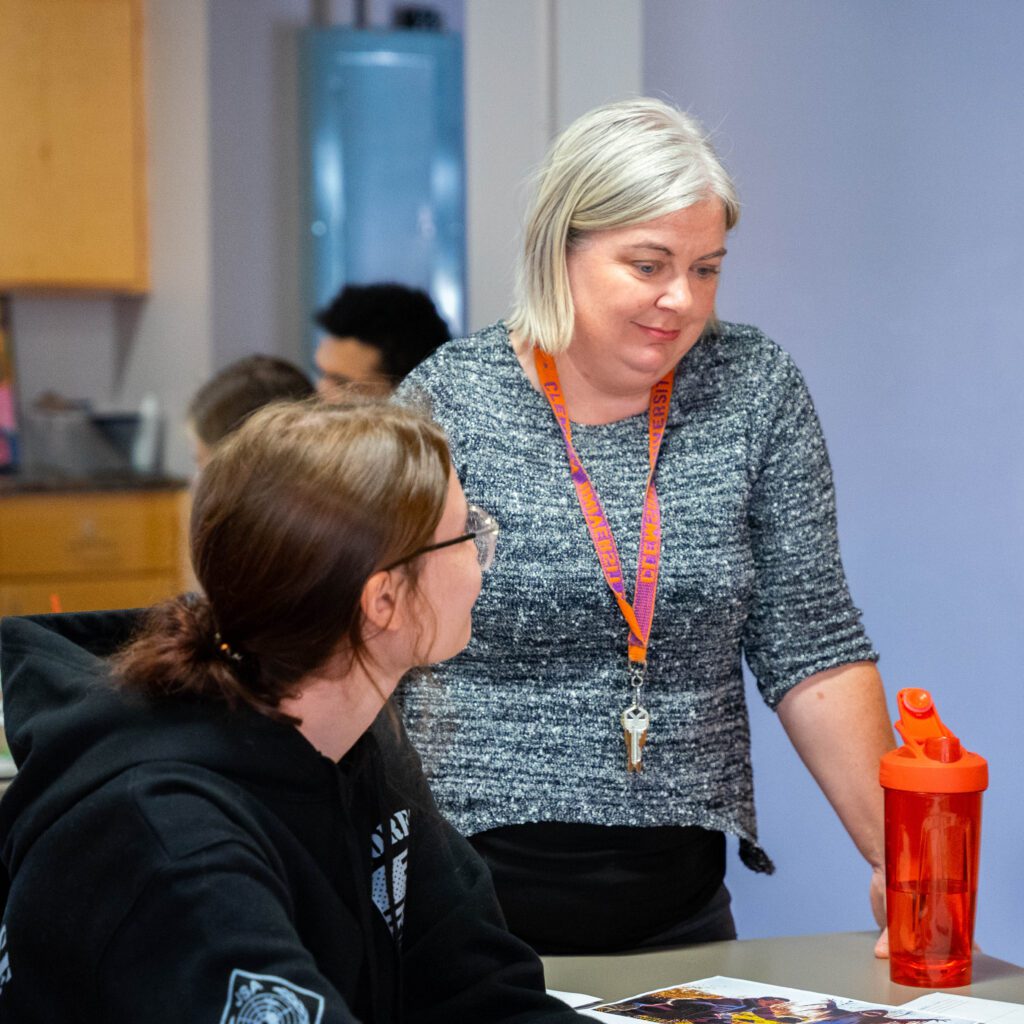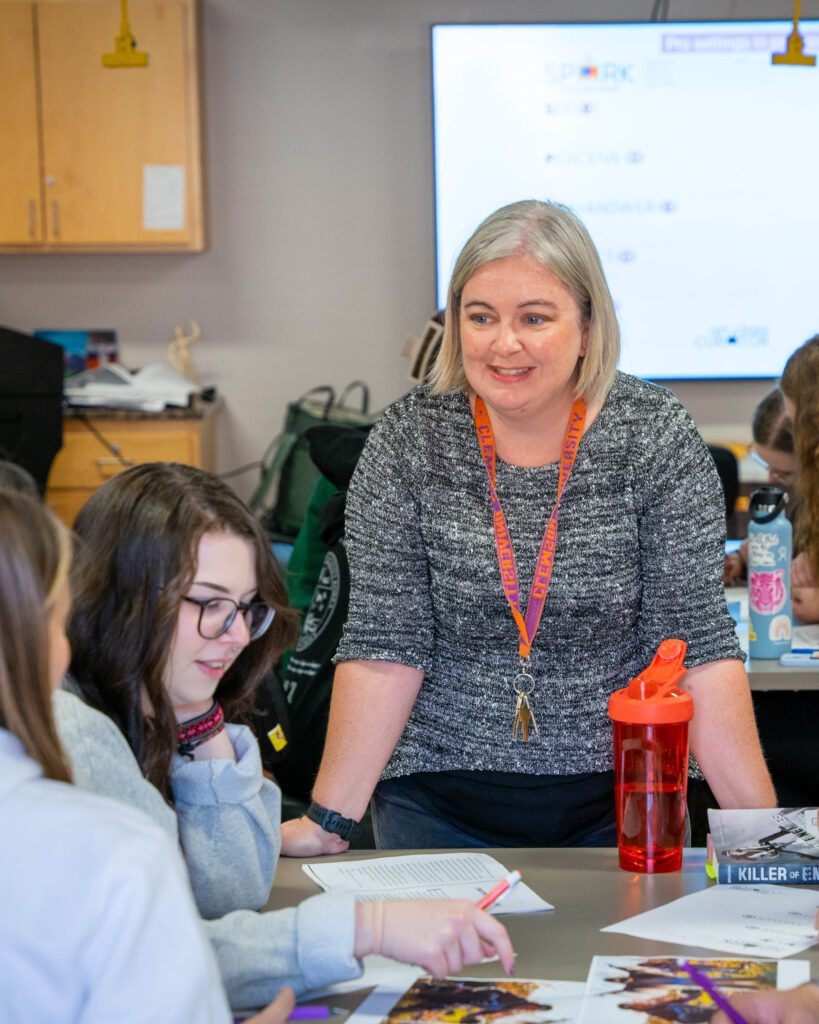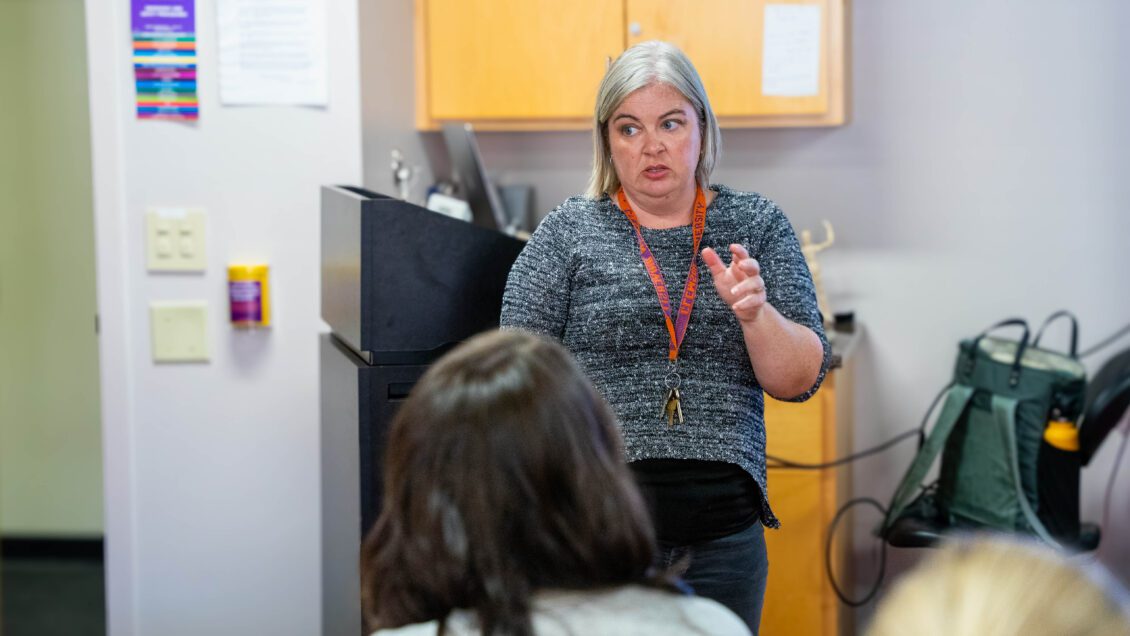Susan Cridland-Hughes serves as an associate professor of secondary education English in the Department of Teaching and Learning. Cridland-Hughes is not satisfied in class until she has worked with her students to look at every subject, idea or practice from every possible angle, which helps to ensure both thoroughness and inclusivity in the classroom.
We caught up with Cridland-Hughes to discuss how she made her way into the field of education via a supportive English professor in college, how she channels Bruce Springsteen to practice empathy with students and why a Bunsen burner should never be used for cooking.
What is your teaching philosophy?
I like to think about my teaching philosophy as exploring ideas and concepts through a kaleidoscope. As a group, we look at a particular idea or practice, then we turn the kaleidoscope and look at it from a different perspective. We do this as many times as necessary to exhaust the potential insights and interpretations we can get from that particular idea or activity. My hope is that students do not solely leave my class with a collection of practices and activities for their own teaching, but with a curiosity for how students in their own classrooms will experience teaching, explore ideas and learn to question.

I also approach my teaching in the way Bruce Springsteen approaches his concerts—he sits in the worst seats in a venue and thinks about how he could make the concert better for the people who experience it there. I want my students to always think about enriching the educational experience for the students who are not afforded the best seats in public education. I’m a product of rural public schools and a first-generation college student, and I believe passionately in the potential of public education.
Why do you love teaching?
I love teaching because I think of it as an opportunity to investigate things that keep me up at night. I think of teaching as weaving threads of equity, justice and community into the fabric of curriculum for reading, writing, speaking and listening. This is especially important given the current educational climate–we have to prioritize a curriculum that reflects the diverse communities we serve in public schools.
When did you know that the field of education was for you?
Interestingly, I was not one of those people who grew up wanting to teach. I wanted to be a newspaper reporter. Then, I did a presentation in an English class in college, and my professor suggested that I should look into teaching. She convinced me I was a natural in front of people—little did I realize that being a natural in front of other college students was not the same as being a natural in front of high schoolers. I joined Teach for America and taught in Baltimore City, and I decided that high schoolers were the funniest, smartest, most simultaneously infuriating and entertaining people in the world. I loved every minute of it, and I wanted to share that with other future teachers.
Name an educator that inspired you to teach.
In lieu of naming an educator that inspired me, I would like to publicly apologize to my high school AP chemistry/independent study typing teacher, Dr. Hyde, for heating up a can of Spaghettios on the Bunsen burner during my AP chemistry lab. I did not take her class seriously enough.

Describe an effective approach you use in the classroom.
One of the things I’m most excited about is connecting arts-based education and English education. I’m working on a research project with Dr. Mindy Spearman in social studies education and Dr. Alison Leonard in arts education. We’ve designed three lessons for a forthcoming book chapter and are using them as sample lessons in my junior methods course, collecting data focused on infusing arts into secondary English education methods courses. The connection between research and teaching helps me keep my methods courses relevant.
For my graduate students, I like to ask deep questions, and then, after an hourlong discussion, tell them that I don’t have the answers. They quickly realize that there are no simple answers for big questions, which I think makes them better researchers. Or at least that’s how I like to interpret their groans.

What do you like about the College of Education?
I have never worked with so many geniuses before, so that’s been amazing. I love my colleagues and the passion they have for equity and justice—shout out to the secondary education program area!
What do you enjoy doing when you are not teaching?
In my spare time, I make homemade soap. It’s a strange hobby, but I love the idea of creating something tangible. So much of academic life is spent in one’s own head, writing things that are often published in online-only formats. When I make soap, the success or failure is immediately apparent. When things work, I have created a product that is real, immediately useful and often beautiful. Sometimes I give soap to my graduating seniors—they seem confused but appreciative.
Get in touch and we will connect you with the author or another expert.
Or email us at news@clemson.edu

